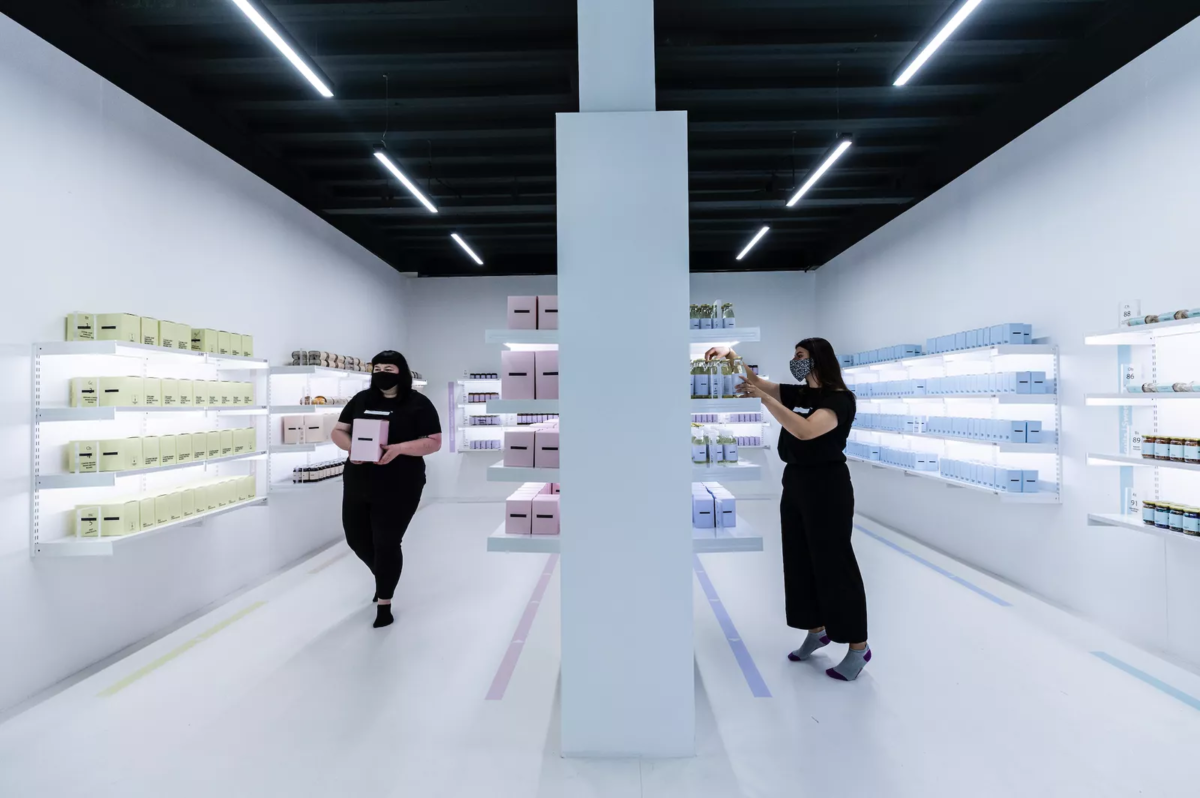Speaking to CulturAll outside Home Gallery on Manchester’s First Street in the bright July sunshine, after 17 months of on-and-off lockdowns, persistent disruption and a global pandemic, the Manchester International Festival director John McGrath does not find it hard to identify its emerging narratives. “There are clearly two themes: one is joy and the excitement and thrill of being with the world, with the community and each other and engaging with ideas. The other theme I feel running through the festival is thoughtfulness and reflection; which again is something we’re all hungry to do after what we’ve all been through.” Two years ago that might have seemed trite, but today it’s clear no festival needs an excuse to pursue these ideas.
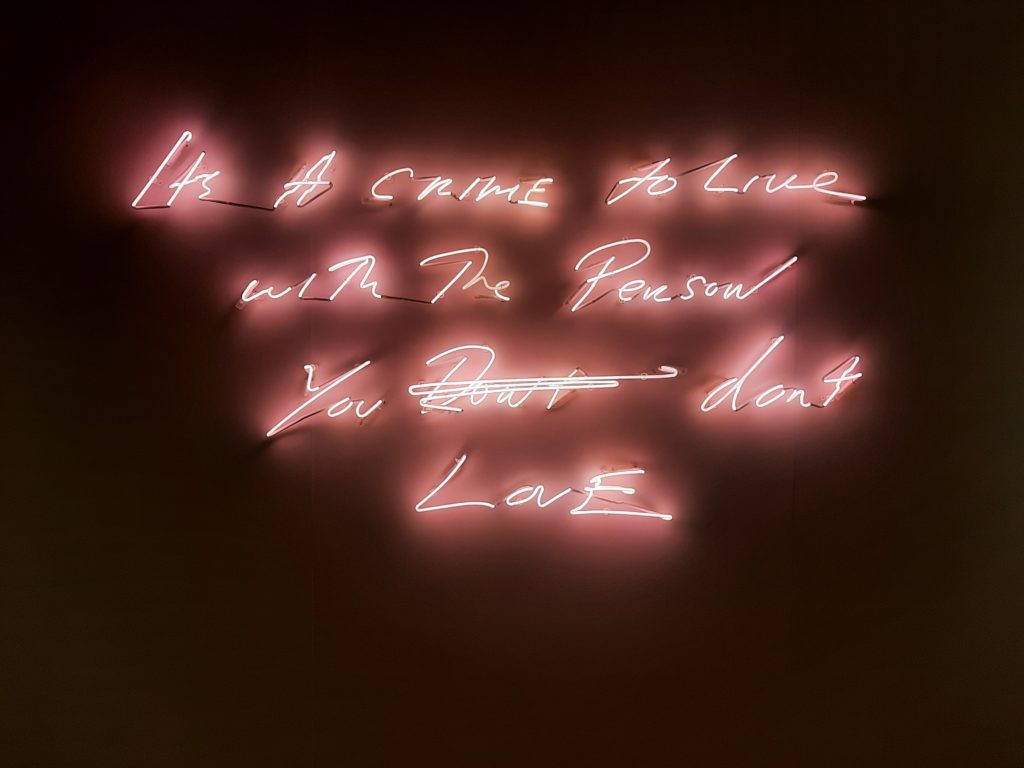
Indeed, how those themes apply to the collective and the individual is something directly explored by Home’s exhibition Poet Slash Artist which mixes mediums to address the urban isolation, natural disasters and the sprites of emotion that have come to play on public and private consciences. The exhibit boasts a diverse collection of artists—most notably Inua Ellams, Jay Bernard, Tracey Emin and Lubaina Himid CBE—and is not unpolitical in its voice. Ellams’ Fuck Concrete visually and verbally details the hard edges of the metropolis, while Himid’s work, Reclaim the Night, addresses the challenges black women continue to face in cities. “It’s an old phrase ‘reclaim the night’, from 40 years ago perhaps, but I’m still asking if it’s possible for us to feel at home in the city. There are serious issues underlying all of this work; we take our audiences seriously and artists find many layers and many ways of saying things.”
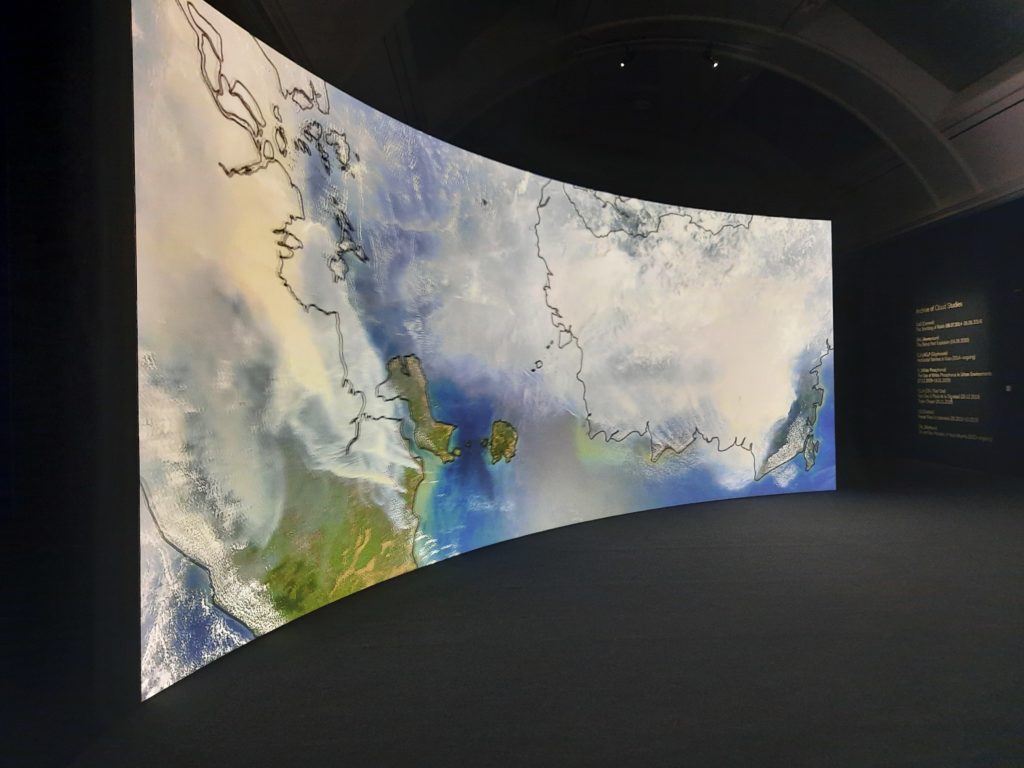
That may sound like a truism but this year’s MIF can claim a special resonance as art returns to speak to power. The Whitworth Gallery’s Forensic Architecture exhibition is a compelling display of the power of data in dissecting and critiquing policy and persecution, revealing the reality of petrochemical polluters, the use of white phosphorus by Israel in Gaza and how the history of slave ownership is being eroded and discarded in Louisiana. In a similar vein, the massive public sculpture in Piccadilly Gardens, Big Ben Lying Down, by Marta Minujín, speaks of political and social imbalance and the North’s relationship with London— though without the nuance or insight to be more than a statement piece.
Art festivals must be of their time and speak to our world but they should also promise something for the future. The importance of reflection must be validated by genuine vision. This year that can be found at EART: A Manifesto of Possibilities at the Dantzic building. The recalibration of self-expression within society that artist Rashid Rana undertakes is thick with words and the mores of post-modern academia but liberating in its mission to redefine the fundamentals of the world and the meaning and purpose of consumerism, design and social policy. You can visit the nearby shop to purchase the brandless commodities that illustrate EART’s Brave New World.
Is this really the future, though? Is the next step the anti-brand and self-expression through independent choice vs commercial coercion, I ask curator Alnoor Mitha.
“Well, how much did you pay for that lemonade you bought from the EART shop?”
“One pound.”
“Exactly.”
It seems EART is finding some value…
City space
The big ideas are not suffocating though. There is plenty to speak to lived experiences and to celebrate the diversity and blends of culture that make Manchester, and the UK, such a vibrant space. Most notably you can see this in Cephas Williams’ Portrait of Black Britain displayed throughout the Arndale Shopping Centre and Laure Prouvost’s The Long, Waited, Weighted Gathering at Manchester Jewish Museum. Both sit perfectly within their settings. Williams’ work hangs as dignified public art above the murmur of the city; Prouvost’s hangs within the old synagogue to tell the more intimate stories of three Jewish women and their Manchester experience. Likewise, Kemang Wa Lehulere’s I Love You Too punctuates the round space of the Central Library’s reading room like an arranged offering to the difficult and elusive demons of public education in South Africa.
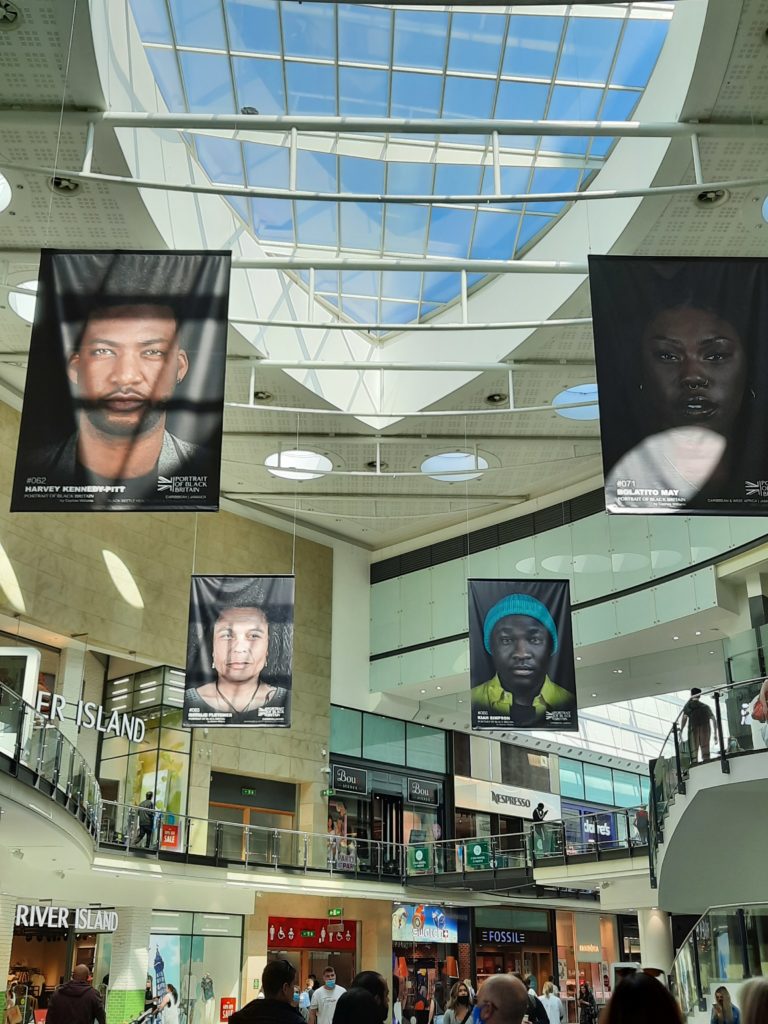
§§§
Reflection and joy are obvious themes for an international festival in 2021 but that is because they are necessary. Art won’t bury the pandemic but it will remind us that we are not defined by viruses and that both hope and hate remain. The festival closes with the arrival of Little Amal, a 3.5m high puppet walking across Europe to highlight the plight of so many refugees and displaced people around the world. We don’t know whether the city will be her new home but the Manchester International Festival is indeed a celebration of the two home tenets so many of us search for: joy and reflection.
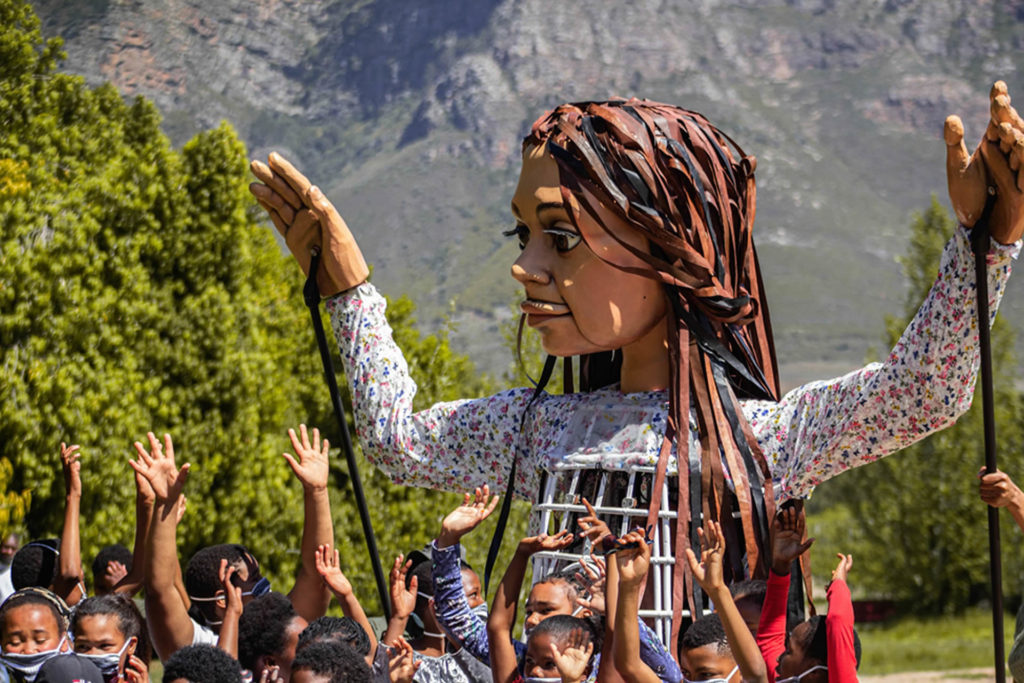
The Manchester International Festival runs 1-18 July 2021
Image top: the EART shop

